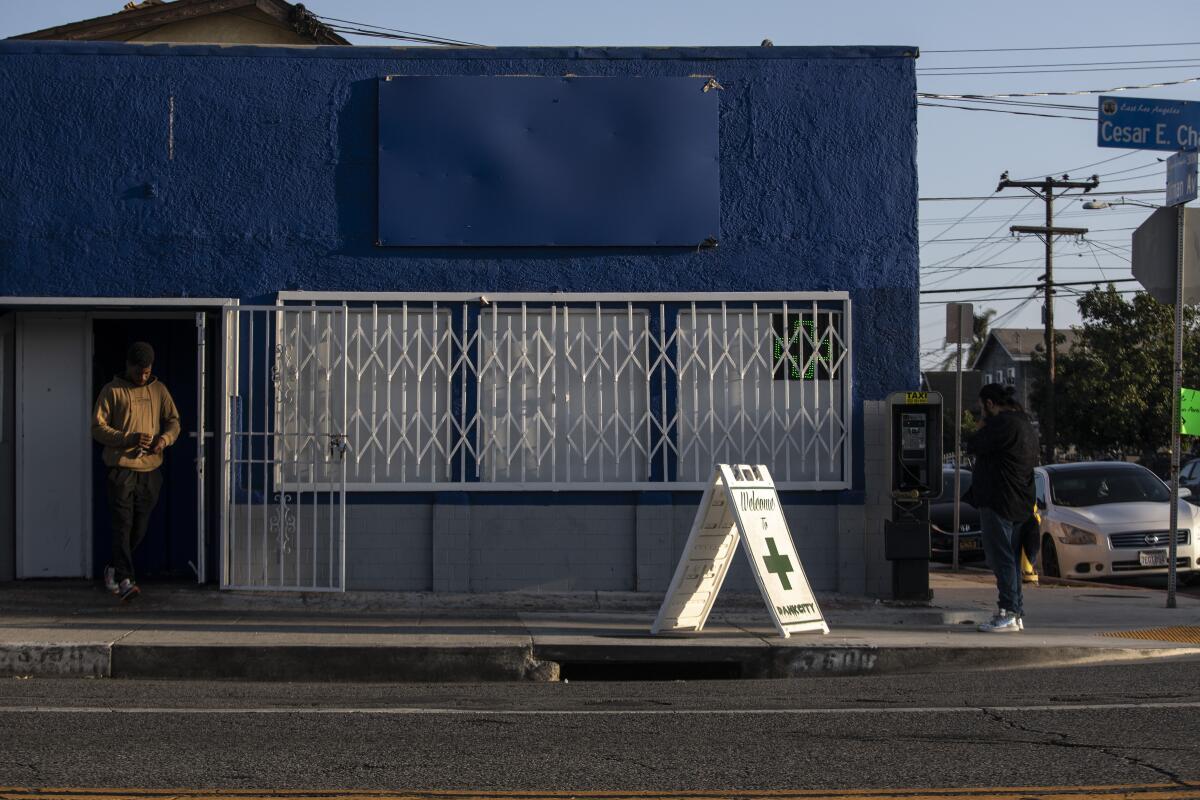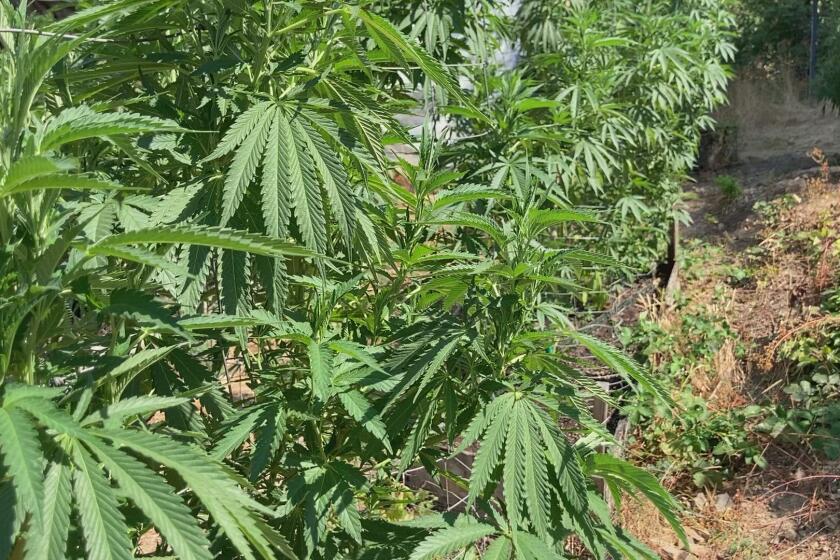Endorsement: Yes on L.A. County Measure C for regulated cannabis sales

California allows adults to buy and use cannabis, but it’s up to each city and county to decide whether sellers can set up shop within its boundaries. In Los Angeles County, for example, the cities of L.A., Long Beach, Lancaster and Pasadena are among those that allow retail marijuana sales. Santa Clarita, Glendale, South Pasadena and Palmdale are among those that don’t.
The largest swaths of L.A. County where cannabis sales are officially banned are the unincorporated areas that aren’t within any city. Not coincidentally, those are the places where the black market thrives, and along with it, robberies, violence and extortion. The Times’ multipart “Legal Weed, Broken Promises” series included a story on stark differences in two parts of Los Angeles’ Eastside. In Boyle Heights, which is within the city of L.A. where retail sales are legal and licensed, prices are higher to cover taxes and license fees, and sales are undercut by illegitimate storefronts selling cheap weed next door in unincorporated East L.A.
Opinions differ on the wisdom of the L.A. County Board of Supervisors having waited so long to license and regulate cannabis sales in East L.A. and other unincorporated communities. Perhaps the supervisors were smart to study how things went in the cities where it’s legal. Or maybe they foolishly dragged their feet so long they helped the illegal market thrive.
In any case, the county has finally created a program to license retail sales in unincorporated areas. That’s where Measure C on the Nov. 8 ballot comes in.
The L.A. Times’ editorial board endorsements for statewide ballot measures, elected offices in Los Angeles city and county, L.A. Unified School District board, L.A. county superior court, statewide offices, the state Legislature and U.S. House and Senate seats.
The measure would impose a relatively low 4% tax on retail cannabis sales in unincorporated L.A. County. Every voter in the county gets to weigh in.
After several years the Board of Supervisors could increase the tax to as much as 6%, or lower it. Measure C also imposes taxes on cannabis growers based on square footage and lighting. Beginning in 2027, taxes would be adjusted with changes in the consumer price index.
The Times recommends a “yes” vote.
Authorizing cannabis sales in the first place will still have to be approved by the Board of Supervisors and is not on the ballot. Likewise, other parts of the program — the number of licenses to be granted, the fee new retailers will pay, lab testing, zoning, environmental protection, the equity rules and guidelines to ensure that big marijuana chains don’t grab all the licenses — will be determined by the board at a future date. Measure C just covers the tax, including some enforcement provisions.
It may seem odd that every voter in the county will be able to weigh in on a tax that will apply only in the unincorporated areas. But L.A. County is the local government for places that don’t have city councils or mayors, and L.A. County voters have the ultimate say on most taxes that go to the county’s general fund, which is where the cannabis taxes will go.
California’s legalization of recreational cannabis in 2016 ushered in a multibillion-dollar industry. But many of the promises of legalization have proved elusive.
The county plans to launch its commercial cannabis licensing program next year. It could do it without a tax, but then all the costs would have to come from licensing fees, which would necessarily be so high that only the large commercial operations could get in the game. Costly licenses would undermine a principal and worthy goal of the program: to provide access to retailers who have historically been excluded from business opportunities or who have disproportionately been undermined by criminal sanctions for growing, selling, using or possessing a substance that is now legal.
The relatively low tax is an attempt to keep customers in unincorporated areas from continuing to patronize black market sellers.
The built-in flexibility for the Board of Supervisors to make adjustments as the program moves forward is a plus. Consider the alternatives. The board could wait until all possible questions are answered — which they will never be, without actually beginning sales. Or it could keep saying “no” to licensed sales altogether. In either case, the result would be more of what we have now: illicit, off-the-books sales and all of the violence, crime and environmental destruction that has made unincorporated Los Angeles County a cannabis nightmare.
Measure C won’t, by itself, quickly and completely end the problems caused by failure to license cannabis sales. But it is one important step in the right direction.
More to Read
A cure for the common opinion
Get thought-provoking perspectives with our weekly newsletter.
You may occasionally receive promotional content from the Los Angeles Times.












